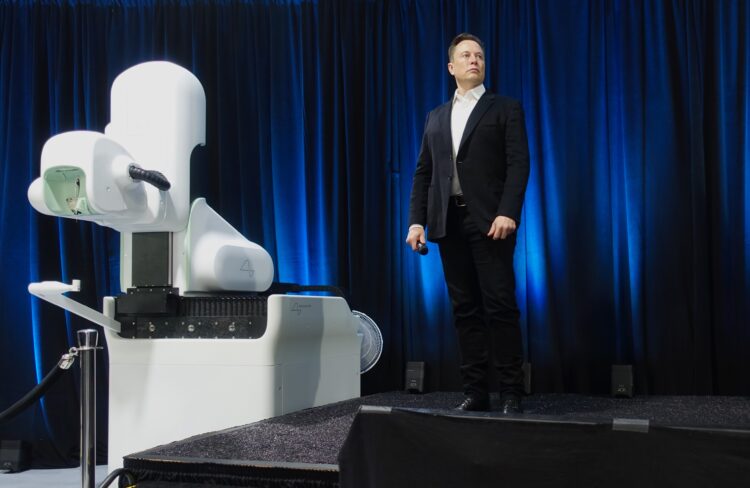Online media will be dragged kicking and screaming into better advertising

Opinion
The media landscape looks more competitive in the coming years and this should mean a renaissance for advertising.
Competition sucks. Like paying tax, we all appreciate it’s necessary for the world but secretly hope we can avoid it ourselves.
And what a charmed life it has been for digital media companies over the last decade, that have built fantastic monopolies that dominate our existence. Google dominates search, Facebook dominates social media, and Amazon dominates online retail.
The internet tends to enable winner-take-all markets and it’s a great way to create mega companies that are simply too big to compete with.
But for other media sectors, like TV, audio and publishing, there is still more than enough room for brands to compete and develop differentiated offers — not just by amassing massive content libraries but by offering better user experiences, too.
That’s why I believe the coming decade could see a more competitive digital media world take root.
Remember how unusual the last 15 years have been to create an anomalous media environment. Rock bottom interest rates meant years of cheap money sloshing around venture capital funds to bet on every Quibi, MySpace and Clubhouse that comes along. Becoming a high-growth stock became more important than a route to profitability. But now the market is becoming more ‘normal’.
Meanwhile, internet users have matured and education is improving over the effects of screen time and social media addiction. And audiences have generally reached a tipping point across TV, audio and publishing where being “digital-first” is no longer seen as a novel strategy.
Regulators in the US and Europe have, slowly but surely, become more serious about clamping down on antitrust, while politicians are being forced to pass laws that hold companies accountable. It’s nowhere near enough, but it’s an improvement.
Times are changing
And better competition should improve the market that media still relies on: advertising.
There have been a lot of think pieces over the last week about why Elon Musk has been such a disaster as Twitter’s owner and de facto CEO (despite whatever title he has given to the hapless Linda Yaccarino).
Many commentators tend to focus on Musk being too rich or impulsive to listen to constructive advice, while conspiracists suggests he’s purposely turning X (what he insists we call his site with the web address twitter.com) into a misinformation- and authoritarian-friendly hellscape.
That all may be true, but what structurally makes Musk unsuited to run a media company that isn’t a monopoly (see above) is that he doesn’t have the skillset to compete. Competing to win means leveraging relationships (being nice to advertisers and opinion formers); building a team of winners (hiring and mobilising talent); and telling a great story (marketing).
Musk hasn’t needed to do that with Paypal, or Tesla, or SpaceX because those companies created their own market-defining category or disrupted markets that had been anticompetitive for too long. They didn’t need to compete because, for a time, they stood on their own.
But Twitter is nothing like that. It’s a minnow compared to Meta and must compete on the basis of not having a supermassive audience. What evidence is there that he has the skills or fortitude for this competitive challenge?
Too much of the Silicon Valley-driven digital media world tries to emulate pre-Twitter Musk or pre-Meta Zuckerberg or ‘Larry and Sergey’ Google. That is, everyone’s looking to avoid competition and create the next breakout monopoly or market-defining product or service.
That’s why, frankly, digital media has been so anti-advertising. And it explains why Musk has little to offer X other than another ill-thought-out subscription plan for users who want to avoid ads (you might ask, “what ads?” given how ad revenue has fallen off a cliff since Musk’s takeover).
It also explains “innovations” which have been so damaging to the long-term health of advertising as a key part of funding media. YouTube encouraging users to “skip ads,” YouTube (again) shoehorning ads into random places in videos, ads following users around the open Web thanks to cookies and trackers, or any of the awful ad inventory you see on most major newsbrand websites.
In my recent interview with The Sun publisher Dominic Carter at The Future of Media, he was candid enough to admit that news publishers had not been good enough at delivering a good user experience on their websites. That’s why you don’t see clickbait recommendation partners on the newsbrand’s website any longer.
That because newsbrands still viewed their main competition as being fought on the newsstands rather than the screen. Now we’ve arrived at the tipping point where online audiences are big enough to make real money from advertising and guess what, competitive newsbrands are developing better user experiences for websites and mobile apps.
And now we’re actually having conversations about quality media on digital platforms with a straight face.
Why the Super Bowl works
It’s not the internet that creates crap media experiences, it’s a lack of competition that does that.
Another 12-month milestone is Netflix launching ads and, as has been well documented here and elsewhere, it’s been an underwhelming start. See my analysis here.
Compare that to my own hopes for Netflix to drag streaming TV advertising into the future, or Initiative UK CSO Will Parrish, who had lots of great ideas for how the streaming giant could make Stranger Things like the Super Bowl.
Netflix is another giant that found enormous success as a near monopoly but now finds itself in the uncomfortable and intense arena of competition. For now, it has the ability to raise prices to keep telling the story of being a high-growth stock. But competitive pressures will only increase and it must begin innovating better ad inventory. Remember that it has acquired much of its enormous content library with the intent of remaining ad-free; it now faces the uphill battle of rights renegotiations and the technical challenge of shoehorning ads into content that wasn’t designed for it.
Remember why American TV viewers like watching Super Bowl ads: the ads are generally great. They are well thought-out, well planned, and delivered with the media context in mind. We need more media owners to create the conditions for great advertising to flourish.
Competition is the way we drag them, kicking and screaming, into offering better inventory.
So maybe we don’t create as many billionaires over the next decade as we did the last. Maybe the media world becomes less predictable. And maybe you people working at media owners and media agencies have to work a bit harder and smarter to prove what you’re doing is adding value.
Yes, competition sucks: it’s exhausting and can be all-consuming. But ultimately consumers win by having more choice with lower prices. And advertisers win by having more choice with lower prices.
Billionaire monopolists like Musk are yesterday’s men. Now is the time for lean, mean competitors.
 Omar Oakes is editor-in-chief of The Media Leader and leads the publication’s TV coverage.
Omar Oakes is editor-in-chief of The Media Leader and leads the publication’s TV coverage.
‘100% Media 0% Nonsense’ is a weekly column about the state of media and advertising. Make sure you sign up to our daily newsletter to get this column in your inbox every Monday.




